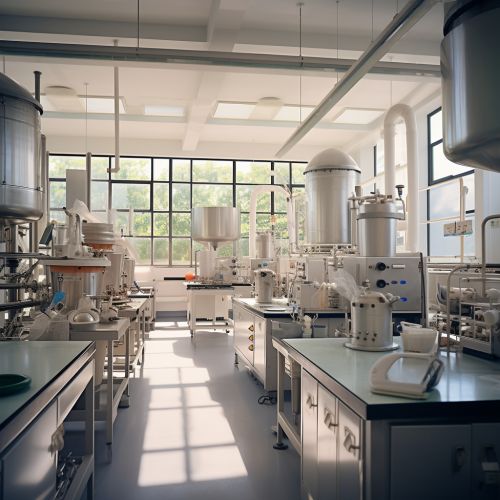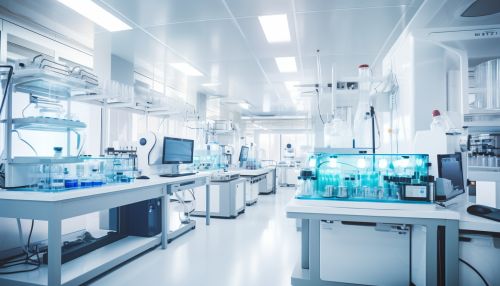Pharmaceutics
Introduction
Pharmaceutics is the discipline of pharmacy that deals with the process of turning a new chemical entity (NCE) or old drugs into a medication to be used safely and effectively by patients. It is also called the science of dosage form design. Pharmacists are involved in the creation, development, production, and assessment of drugs (medicines). These can be drugs that are used to treat a wide range of diseases and conditions in humans and animals.


History of Pharmaceutics
The history of pharmaceutics has been a progression from simple drug formulation and compounding to a highly specialized discipline focused on drug delivery and targeting. The earliest pharmaceuticals were plant-based, and many of these early pharmacognostic drugs are still in use today. The development of synthetic organic chemistry in the 19th century opened up new possibilities for drug creation and led to the modern pharmaceutical industry.
Drug Discovery and Development
The process of drug discovery involves the identification of candidates, synthesis, characterization, screening, and assays for therapeutic efficacy. Once a compound has shown its value in these tests, it will begin the process of drug development prior to clinical trials. There are many aspects to drug development, including the stages of pre-formulation, formulation, validation, and manufacturing of the final product.
Pre-formulation
The pre-formulation stage is the first step in designing and developing any drug. It provides a comprehensive understanding of a drug's physical and chemical properties. In studying the physical and chemical properties of the drug, pre-formulation studies identify the suitable salt and polymorphic form of drug substance, evaluate its physicochemical properties, such as solubility and stability, determine its degradation pathways, establish kinetic profile of its degradation, and develop suitable analytical method(s) to analyze the drug and its degradation products.
Formulation
Drug formulation refers to the process in which different chemical substances, including the active drug, are combined to produce a final medicinal product. The formulation is often designed to optimize delivery, stability, and patient acceptance. Formulation studies involve developing a preparation of the drug which is both stable and acceptable to the patient. This often involves encapsulating the drug in a specially designed and engineered drug delivery system.
Validation
Validation is an essential part of quality control in pharmaceutics. It provides a certain level of confidence in the quality, reliability, and consistency of the drug product. It is an evidence-based process, requiring rigorous testing and documentation. The validation process ensures that the drug product is consistently produced to meet its specification and quality attributes.
Manufacturing
Pharmaceutical manufacturing involves the synthesis and processing of drugs in a commercial scale. It involves multiple stages including drug formulation, granulation, blending, tablet pressing, coating, packaging and others. The manufacturing process must be carried out in accordance with the good manufacturing practices (GMP) to ensure the quality of the final product.
Drug Delivery Systems
Drug delivery systems are engineered technologies for the targeted delivery and/or controlled release of therapeutic agents. They play a crucial role in the delivery of pharmaceutical compounds and drugs to the desired site of action within the body. These systems may be able to deliver drugs over a prolonged period of time, increase the bioavailability of a drug, reduce the side effects of a drug, and maintain a steady state plasma level of the drug for a prolonged period of time.
Future of Pharmaceutics
The future of pharmaceutics is likely to be profoundly influenced by advances in biotechnology, nanotechnology, and personalized medicine. The development of targeted drug delivery systems, gene therapy, and individualized dosage forms based on genetic profiling are some of the future trends in pharmaceutics.
